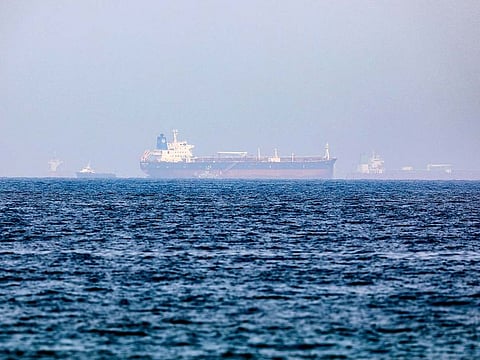Global action needed to stop attacks on ships
We need constructive collaboration between all the relevant stakeholders

The recent attacks on oil and commercial vessels in regional waters raise serious concerns about the security of this vital region, the responsibility of which must be shouldered by the international community.
Repeated calls by regional states and organisations calling upon state actors, such as Iran, to refrain from actions that jeopardise the security and stability of the region have obviously fallen on deaf ears.
Tehran, which says it is keen on stability in the Gulf, has been engaged in tit for tat attacks with Israel. Despite its strong denials, an international investigation established Iran’s responsibility in the recent attack by at least three drones on the Israeli owned oil tanker in the Gulf of Oman.
Shortly after the attack, the US, the UK and Nato vowed an appropriate response, which will in all probability not come. The lack of a serious international action is exactly the reason that Iran, for example, continues its belligerent policies across our region — in Yemen, Iraq, Lebanon and Syria where it funds and arms extremist militias whose sole objective is to prolong the conflicts in the Middle East.
International responsibility
Gulf states are more than capable of protecting their security and national interests. However, safeguarding the vital shipping routes, through which 40 per cent of global energy supply goes, is also an international responsibility.
With the United States planning to reduce its engagement in the region as seen by their hasty withdrawal from Afghanistan and earlier from Iraq, world must not lose focus. We cannot afford to give up on multilateral efforts to confront any threat to the stability and security of this region.
The United Nations has so far not been able to enforce its own resolutions with regard of peace and security in the Middle East. That has thus led to the ability of a regional state and some non-state actors to push ahead with their destabilising agendas that continue to threaten the national security of the Arab world and the wider global peace. Now, world trade is at risk at a time when the world economy in an extremely fragile and sensitive state due to the ongoing coronavirus pandemic.
Few years ago, in a multilateral action, a joint task force successfully ended the piracy threat to commercial ships off the eastern coast of Africa and the Arabian Sea. It was an example of constructive collaboration between all the relevant stakeholders. A similar approach is needed to end the emerging threat to commercial routes that keep the wheels of the world economy running.
Sign up for the Daily Briefing
Get the latest news and updates straight to your inbox








